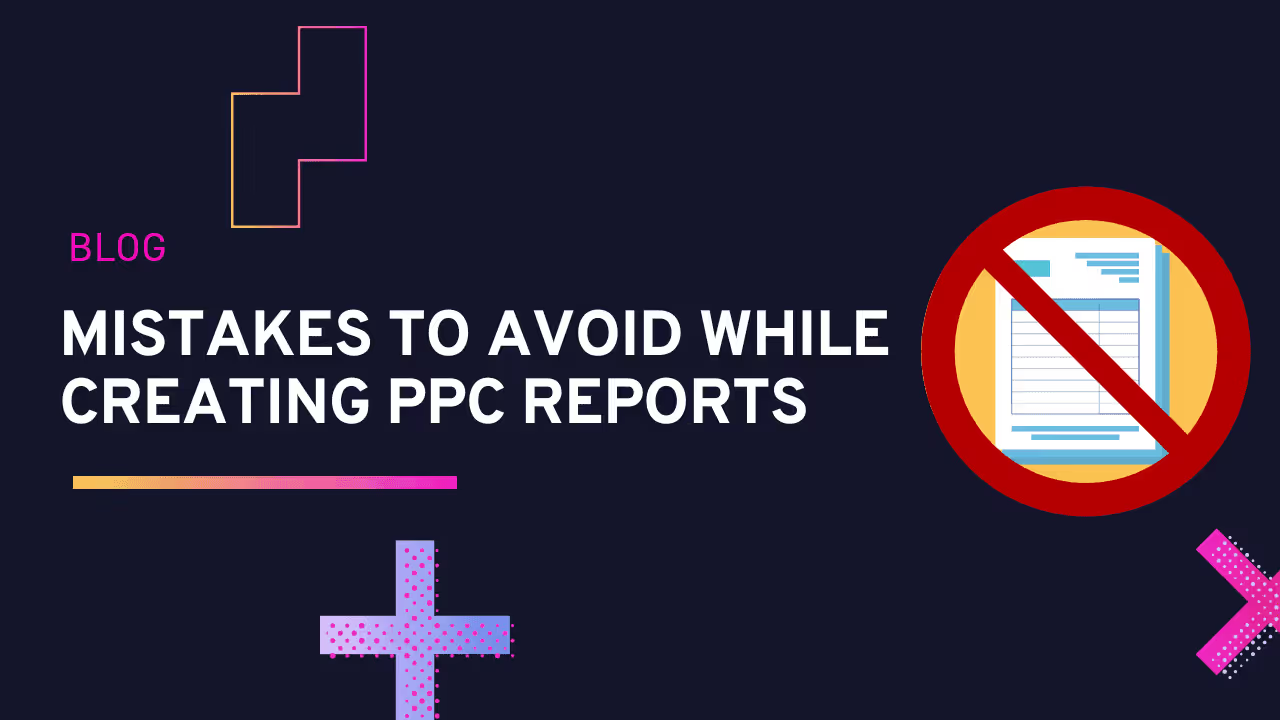Una de las formas clave de construir una carrera de marketing gratificante es tener buenas habilidades de comunicación. Para los administradores de PPC (pago por clic), la comunicación eficaz es especialmente importante cuando comparten informes de PPC interesantes y reveladores. Ya sea que lleves a cabo una campaña de PPC para un cliente o gestiones tus campañas, es esencial crear informes bien estructurados. Estos informes deben reflejar no solo los resultados, sino también su experiencia y pensamiento estratégico en la gestión de las campañas de PPC. Si eres un principiante o llevas mucho tiempo creando informes de PPC personalizados, es importante que seas consciente de los errores comunes que podrían socavar tus esfuerzos. En este artículo, analizaremos los errores clave que se deben evitar al crear y compartir informes de PPC.
Enviar informes de PPC demasiado pronto
Un error común en los informes de PPC es enviar los informes demasiado pronto. Los informes que compartas con tus clientes deben mostrar la eficacia de tus esfuerzos de PPC. Cuando te apresuras a enviar informes de forma prematura, puedes infravalorar el arduo trabajo que has dedicado a la gestión de las campañas de PPC. Si envías datos demasiado pronto, corres el riesgo de perderte métricas importantes que podrían ayudarte a impulsar tus esfuerzos de PPC y a ofrecer una imagen más precisa del rendimiento de tu campaña.
Una de las razones técnicas para evitar la presentación temprana de informes radica en la forma en que AdWords y otras plataformas de PPC actualizan sus datos. Por ejemplo, los datos de clics y costes suelen actualizarse prácticamente en tiempo real, pero los datos de conversiones y ventas pueden tardar más en aparecer, especialmente si utilizas un sistema como Google Analytics. Esperar un poco más para asegurarte de que tus datos están completos y reflejan las conversiones reales puede marcar una diferencia significativa en la eficacia de tus informes de PPC.
Si el informe incluye indicadores clave de rendimiento (KPI), es mejor esperar un poco más antes de enviarlo para captar más conversiones y presentar una visión más completa del rendimiento de la campaña. Una buena regla general es no compartir el informe de PPC del mes anterior hasta que hayas recopilado al menos cuatro semanas de datos de conversión.
Segmentación inadecuada de los informes de PPC

La segmentación eficaz es crucial para crear informes de PPC útiles y significativos. Muchos administradores de PPC principiantes o incluso experimentados suelen cometer el error de incluir muy poca información o de abrumar a sus clientes con demasiados datos. Es importante lograr el equilibrio adecuado para garantizar que sus informes de PPC proporcionen información útil sin causar confusión.
La clave para un informe de PPC bien estructurado es la segmentación adecuada. Algunos segmentos comunes que puedes incluir en tus informes de PPC son:
- Redes: Desglosa el rendimiento por redes de búsqueda, display u otras redes publicitarias.
- Dispositivos: Analice el rendimiento de las campañas en dispositivos de escritorio, móviles y tabletas.
- Palabras clave de marca y palabras clave que no son de marca: Separe los datos de los términos de búsqueda con marca y sin marca para evaluar el rendimiento de la campaña.
- Hora de la semana: Identifique los momentos de máximo rendimiento para ayudar a optimizar la programación de las campañas.
- Audiencias: Segmente los datos en función de la segmentación demográfica, geográfica o basada en intereses.
Los informes correctamente segmentados permiten a los clientes o a la gerencia comprender el rendimiento de cada aspecto de una campaña de PPC e identificar las áreas de mejora. La segmentación adecuada también ayuda a mantener el informe centrado en lo que más le importa al cliente o a la empresa.
Incluir demasiados datos en los informes de PPC
Otro error común es incluir demasiados datos en los informes de PPC. Si bien es importante proporcionar información detallada, bombardear a los clientes o a la gerencia con datos excesivos puede resultar contraproducente. Incluir demasiadas métricas, tablas e información sobre cada página y entidad puede abrumar al destinatario y dificultarle extraer conclusiones significativas.
Es esencial centrarse en proporcionar solo los datos más relevantes que se alineen con sus objetivos de PPC. Por ejemplo, en lugar de presentar todas las métricas disponibles en AdWords o Google Analytics, céntrate en los indicadores de rendimiento de alto nivel, como los clics, las conversiones, las tasas de conversión, el coste por adquisición (CPA) y el retorno de la inversión publicitaria (ROAS). Al limitar la cantidad de datos, puedes ahorrar tiempo tanto para tu equipo como para tus clientes y, al mismo tiempo, ofrecer información útil.
Un informe de PPC conciso pero completo garantiza que su cliente o gerente pueda comprender rápidamente el rendimiento de la campaña sin quedarse atascado en detalles irrelevantes. Esto es especialmente cierto para los clientes que pueden no tener el tiempo o la experiencia para interpretar grandes cantidades de datos.
Automatizar los informes de PPC para evitar errores
Para los administradores de PPC que desean evitar errores comunes en los informes, la automatización del proceso de informes de PPC puede cambiar las reglas del juego. El uso de una herramienta gratuita de informes de PPC puede ahorrar tiempo y agilizar el proceso. Por ejemplo, Capa de datos es una herramienta confiable de informes de PPC que puede ayudarlo a crear informes de PPC precisos y detallados y a actualizarlos automáticamente en Google Sheets. Con funciones como la funcionalidad de arrastrar y soltar y las plantillas de informes personalizadas, Datslayer simplifica el proceso de elaboración de informes y te ayuda a evitar errores como enviar informes demasiado pronto, segmentarlos de forma incorrecta o incluir demasiados datos.
Al automatizar sus tareas de informes de PPC, puede centrarse más en optimizar sus campañas y menos en los informes manuales. Esto no solo ahorra tiempo, sino que también garantiza que sus informes sean oportunos, precisos y fáciles de entender.
Conclusión: Perfeccionar sus informes de PPC para el crecimiento profesional
Crear informes de PPC efectivos es una habilidad esencial para los gerentes de PPC que desean avanzar en sus carreras. Al evitar errores comunes, como enviar informes demasiado pronto, segmentar los datos de forma incorrecta e incluir demasiada información, puedes asegurarte de que tus informes de PPC sean impactantes y valiosos para tus clientes o la gerencia. Recuerda que tus informes de PPC deben reflejar tu experiencia, ayudar a impulsar las decisiones empresariales y proporcionar información clara sobre el rendimiento de tus campañas de PPC.







